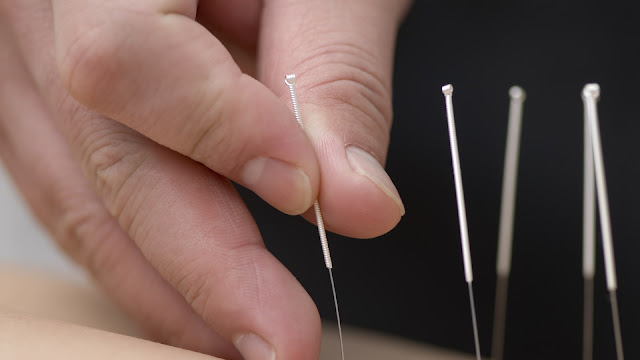Acupuncture Treatment for Female Infertility: A Comprehensive Overview
For millennia, acupuncture, a key component of traditional Chinese medicine (TCM), has been used to treat a myriad of health conditions. In recent years, its role in enhancing fertility, particularly in women, has garnered significant attention. This article delves into the intricacies of acupuncture as a treatment modality for female infertility, offering insights into its efficacy, methodology, and underlying mechanisms.
1. Understanding Female Infertility:
Infertility is defined as the inability to conceive after a
year of unprotected intercourse. For women above 35, this duration is reduced
to six months. The causes of female infertility can range from ovulatory
disorders and fallopian tube damage to endometriosis and age-related factors.
Addressing these causes holistically, many women have turned to acupuncture to
either complement their ongoing treatments or to explore a natural avenue.
2. What is Acupuncture?
Acupuncture involves the insertion of extremely thin,
sterile needles into specific points on the body, known as acupoints. These
points are believed to lie on meridians where Qi (pronounced "chi"),
or vital energy, flows. When there is an imbalance or blockage in this flow, it
can result in illness or dysfunction. Acupuncture aims to restore balance and
promote natural healing by stimulating these points.
3. Acupuncture and Female Fertility: The Connection
How does acupuncture tie into female fertility? Let's
explore:
i. Hormonal Regulation: Acupuncture is believed to
modulate the endocrine system. This can help regulate hormones that play a
critical role in ovulation, menstrual cycle regularity, and overall
reproductive health.
ii. Improved Blood Flow: By targeting specific
acupoints, acupuncture can increase blood flow to the reproductive organs,
enhancing the health and function of the ovaries and uterus, thus making the
environment more conducive to conception.
iii. Stress Reduction: Chronic stress can negatively
impact fertility. Acupuncture is renowned for its relaxation benefits, and
reducing stress levels can potentially improve conception odds.
4. Scientific Backing and Clinical Studies:
Several studies have delved into the efficacy of acupuncture
as a treatment for female infertility.
Benefits of eating fruits everyday
For instance, a study published in the journal
"Fertility and Sterility" found that acupuncture, when combined with
in vitro fertilization (IVF), increased pregnancy rates. Another research
showed that women undergoing acupuncture exhibited fewer instances of ovarian
hyperstimulation syndrome, a potential side effect of fertility treatments.
Moreover, the focus isn't just on conception. Research
indicates that acupuncture can help reduce miscarriage rates, particularly when
used in the early stages of pregnancy.
However, it's essential to understand that while many
studies hint at acupuncture's positive impact, the scientific community is
still divided. Some studies did not find significant improvements, suggesting
that further large-scale, well-designed research is required.
5. Integrating Acupuncture with Modern Treatments:
Acupuncture doesn't necessarily replace conventional
fertility treatments. Many fertility specialists recommend it as an adjunct
therapy alongside IVF or intrauterine insemination (IUI). When used in
conjunction, acupuncture can enhance the effectiveness of these treatments,
reduce their side effects, and promote overall well-being.
6. What to Expect in an Acupuncture Session:
If you're considering acupuncture for infertility, it's
crucial to know what to expect:
- A
session typically lasts between 30 to 60 minutes.
- The
practitioner will ask about your health history and fertility challenges.
- Depending
on your condition, needles are inserted into specific acupoints. They
remain in place for 15-30 minutes.
- Most
women report minimal discomfort, with many describing the experience as
deeply relaxing.
7. Choosing the Right Practitioner:
It's essential to select a licensed and experienced
acupuncturist, especially one with expertise in treating fertility issues.
Always ask for credentials, seek recommendations, and ensure they follow
stringent hygiene practices.
Acupuncture for depression and anxiety
Conclusion:
Acupuncture, with its roots in ancient Chinese medicine,
offers a holistic approach to addressing female infertility. While it may not
be a standalone solution for everyone, its potential benefits in regulating
hormones, improving blood flow to reproductive organs, and reducing stress make
it a worthy consideration. As with any medical intervention, it's essential to
engage in open dialogue with healthcare providers and explore the best
integrated approach to optimize fertility outcomes.

Post a Comment for " Acupuncture Treatment for Female Infertility: A Comprehensive Overview"